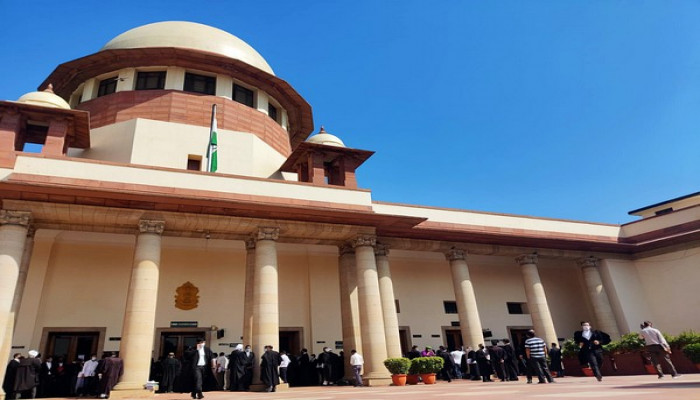Supreme Court refuses to stay retirement of 15 NCLT members
- In Reports
- 11:08 PM, Jun 20, 2022
- Myind Staff
With the Union government granting an extension to only 8 out of 23 retiring members of the National Company Law Tribunal (NCLT), the Supreme Court on Monday refused to stay the retirement of the remaining 15 members and posted the matter for hearing next month to consider whether a petition by the NCLT bar association seeking an extension to the retiring members is maintainable, Hindustan Times reported.
The Court found that none of the 15 members retiring by July 3 had approached the Court challenging the September 2019 notification by which they got appointed for three years. The NCLT bar associated filed a petition in the top court claiming that this appointment was wrong in law as Section 413 of the Companies Act provides for an appointment of five years or 65 years, whichever is earlier.
A bench of justices CT Ravikumar and Sudhanshu Dhulia said, “All those who were appointed in 2019 knew that their tenure of appointment was for 3 years. Without demur, they accepted it. Till date, those appointees have not challenged the order of appointment. Who are you (NCLT bar association) to challenge it?”
"Suppose if any one of the appointees approached the court in 2022, after accepting the order of appointment, definitely our question would have been- you accepted the notification of 3 years with open eyes, without any demur. Those persons have not challenged, now the bar association has filed in 2022, when persons were appointed in 2019, after accepting the notification with open eyes. Now when their term is about to end, we cannot hear at the instance of someone else.."
"They were issued the letter of appointment and they knew that they would be appointed for 3 years and they opted for it. Till date those appointees did not challenge that", Justice Ravikumar added.
Senior Advocate VK Chaudhary appearing for the Association submitted that all the members have given representations. Justice Ravikumar replied that mere giving of representation will not create any rights.
The Association's counsel submitted that their concern was regarding the "collapse" of the Tribunal if so many members are allowed to demit office. He informed that out of the 23, the Centre has given two year extension to 8 members, leaving out 15 members and alleged that it amounted to "cherry-picking".
"This is the tribunal which has stopped the entire banking system from collapse. This tribunal has recovered lakhs of crores. The total sanctioned strength is 63 members and it is supposed to sit in 28 benches across the country. But it is functioning only with 45 members in 19 benches. If the retirement of 15 members is permitted in July, it will bring down the strength to 30, which will be less than half the sanctioned strength. Looking on day to day working, that there's so much pressure on the Tribunals. The cases of companies are not being taken up", the counsel submitted.
Solicitor General of India Tushar Mehta, referring to the affidavit filed by the Union Government, submitted that the term of 8 members was extended not based on "cherry-picking" but on the basis of verification of character antecedents and suitability. The SG submitted that the verification reports were placed before the Search cum Selection Committee headed by the Chief Justice of India. The Committee led by the CJI left the matter to the Government to take appropriate action. The Committee, which also consisted of another Supreme Court judge Justice Surya Kant, observed that there is no express provision in the rules, which empowers the committee to consider the issue of revision of the term of office of members, NCLT, and accordingly left the matter to the Government for an appropriate decision, the SG submitted.
"The government considered the cases of all the persons and only considered to extend the cases of 8. If they were aggrieved, they ought to have challenged. If they are before us, we would have put them a question", Justice Ravikumar observed.
The matter will be considered next on July 20 on the consent of the petitioner and the Union Government.
Image courtesy: ANI







Comments